June 3rd, 2019
EU PPF’s main goal is to support and reinforce the capacities of the Serbian administration in the planning, programming and implementation of the EU funds. Capacity building activities of the EU PPF7 project unit are intended to ensure a sustainable capacity building within the Ministry for EU Integration and Line Ministries, relevant for the management of development assistance, especially IPA II and then IPA III, and ensure a more informed dialogue between MEI and the LMs during the process of planning and programming.
In order to avoid overlaps and ensure effective use of project resources, the EU PPF7 team took into consideration capacity building plan delivered by previous assistance under EU PPF5, MEI and SUK, now the newly established National Academy for Public Administration (NAPA) training programmes, Capacity Building Programme for Cohesion policy in the Republic of Serbia, as well as the activities of other EU PPF project units such as EU PPF6 and EU PPF8.
The TNA carried out by the EU PPF7 Team, in close cooperation with MEI, showed that, in order to ensure sustainability of capacity building interventions, most experienced staff in MEI amd LMs need to develop their trainer skills with the scope to establish a pool of NAPA accredited trainers who will be able to deliver training on topics related to programming, monitoring, evaluation, visibility and sector approach to civil servants.
Thus four rounds of ToT will be organised in Valencia, as part of study tours, encompassing visits to the regional authorities of Valencia. The planned study tours will focus on improving trainers skills on specific topics related to management of EU funds, combined with practical working meetings with the Directorate General in charge of European Funds on different aspects of project management (e.g. sector approach, monitoring of the projects within the EU Cohesion Policy framework, etc.). Two study tours have already been organised (one at the beginning of April, and one by the end of May 2019). Third study tour will take place from 10th to 14th June, 2019, and the fourth study tour will be organised from 15th to 18th July 2019. Each study tour will be by 6 employees from relevant project beneficiaries (MEI, CFCU, NAO and NAPA).
The participants of the study tour/ToT will then act as co-trainers in the EU PPF7 training modules to civil servants in Serbia delivered by international trainers.
The following are the trainings that the EU PPF7 project is organising in Serbia, in the premises of the National Academy for Public Administration.
| Training modules | Trainers | Dates |
| Training on sector wide approach, sectors analysis and priority identification | Johanna Lindgren & Jérôme Dendura | 4 – 5 June 2019 |
| Training on communication and negotiation skills | Nataša Ristić | 17-18 June 2019 |
| Training on performance assessment framework (PAF) & EU sector budget support (design only) | Jérôme Dendura & Willem Cornelissen |
24 – 26 September 2019 |
|
Project Cycle Management |
Geraldo Carreiro | 17-19 September 2019 |
The overall objective of the PPF7 project is to assist the Serbian administration to effectively manage EU integration and pre-accession assistance in order to speed up preparation for EU membership. This is done through the assistance for the development of the strategic planning and programming documents related to EU assistance provided to MEI and relevant national institutions/organizations, through the infrastructure projects intended for financing under IPA II and through support to national institutions/organisations in strengthening capacities related to planning and programming of EU assistance.
The capacity building activities are in line with the sector approach requirement under IPA II planning and programming process and the coming needs under the IPA III financial framework. These activities are developed in order to strengthen the role of MEI and LMs staff in the planning and programming process.
The PPF7 carried out an initial training needs assessment in order to estimate staff training needs, knowledge skills and gaps. Following the training needs assessment, the PPF7 envisaged delivery of four study tours/ToT in Valencia, followed by four training modules on IPA related topics in Serbia. These capacity building activities are being delivered through the support of certified trainers from the EU Commission network.
Study tours/ ToT
The study tours in Valencia have been combined with the Training of Trainers. Their focus is on improving trainers skills on specific topics related to management of EU funds, combined with practical working meetings with the Directorate General in charge of European Funds in Valencia on different aspects of project management (e.g. sector approach, monitoring of the projects within the EU Cohesion Policy framework, etc.).
So far four study tours/ToTs have been organized in Valencia, one in April 2019, one in May 2019 and one in June 2019. The fourth study tour was organized from 15th to 19th July 2019. 22 participants of the ToT came from the Ministry of European Integration (MEI), two from the Central Financing and Contracting Unit (CFCU) of the Ministry of Finance and one from National Academy for Public Administration (NAPA).
Once the participants finish the ToT training, they will have the opportunity to act as co-trainers in the trainings that the PPF7 project is organizing in Serbia, in cooperation with the National Academy for Public Administration. The aim is to speed up the process of their
Sector Wide approach
This was the first training course provided by the PPF7 was organised in June 2019 in Serbia, in association with the National Academy for Public Administration. It was well received and the participants were the representatives of the Ministry of Finance, the Ministry of Labor, Employment, Veteran and Social Policy, the Ministry of Agriculture, the Ministry of EU Integration, as well as the ones coming from other stakeholder institutions involved.
A Sector Approach is a way to improve strategic thinking and the intervention logic, allowing financial assistance to be well targeted and focused, prioritised and sequenced. This is accompanied with greater emphasises on results-based programming, a better focus on prioritisation and sequencing, improved needs assessment and better risk analysis. Thus, this training was designed for the staff of MEI and selected LMs, as well as other stakeholder staff, in order to help them understand donor approaches and policies as well as the focus on sector wide approaches.
Communication and negotiation skills
This course was designed for the representatives of public administration to help them improve their communication and negotiation skills. The basic idea was to combine negotiation, persuasion, influence and communication skills that are interrelated into effective communication. The ability to listen, ask the right questions at the right time and come across with confidence and credibility is an important part of the subtle mix of skills needed to succeed.
At the end of the training course the participants were able to:
- Develop communications on a one-to-one basis and in group situations such as meetings, negotiations and presentations
- Work towards mutually satisfactory agreements through professional negotiations leading – where possible – to win / win solutions
- Deliver professional presentations to small and large groups with clarity, persuasiveness and confidence
This training course, organised in association with the National Academy for Public Administration, proved more than useful for the participants. 30 people attended the training, most of them coming from the Ministry of Finance, then the Ministry of EU Integration, Ministry of Internal Affairs, Ministry of Agriculture, and other stakeholder
PCM
The training on Project Cycle Management will be organized in the premises of the National Academy for Public Administration in September 2019. The aim of the training will be to improve the knowledge on the project preparation process while understanding the roles and responsibilities of various stakeholders in different phases of PCM.
Training will cover the following topics:
- Introduction to Project Cycle Management
- Situational analysis (policy framework, environmental analysis)
- Building Intervention logic (overall objectives, project purpose and results)
- Identifying risks and assumptions
- Defining assumptions
- Introduction to indicators, criteria and steps
- Developing objectively verifiable indicators
- Assessment of Logical Frameworks
Performance Assessment Framework & EU sector budget support
This training will also be organized in the premises of the National Academy for Public Administration in September 2019, and it will focus on performance assessment and indicators, principles of performance monitoring and management, choice of indicators and data collection. The training will cover the following topics:
- Performance Measurement (PM) as a type of monitoring that focuses on programme outcomes.
- Performance indicators developed as standards to assess the extent to which public programme results/outcomes are achieved
- Performance Management as system of regularly measuring programme results or outcomes and using this information to improve service delivery.
- Indicators and statistical system: choice of indicators crucial for performance management and monitoring
- The function of performance indicators
- Type of indicators: SMART and RACER
- Challenges of indicators
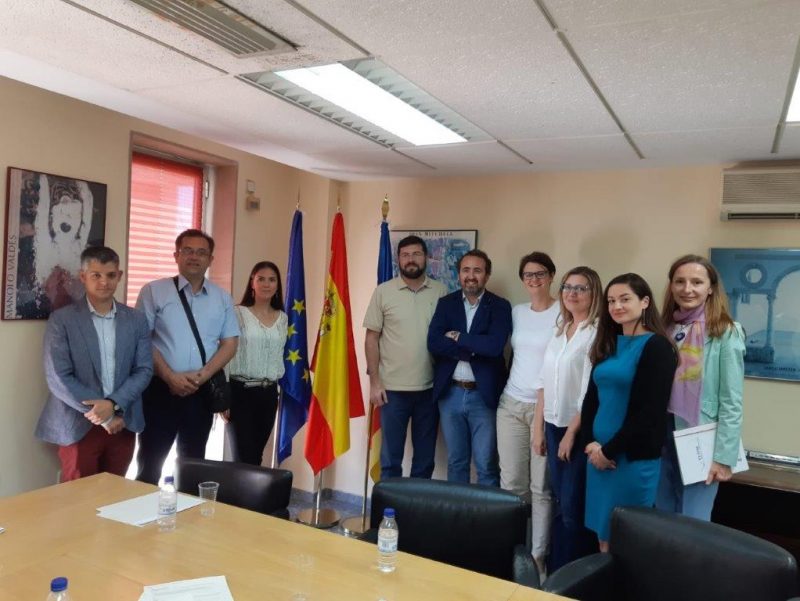
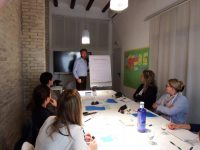

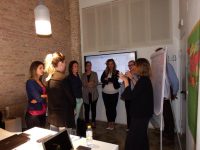

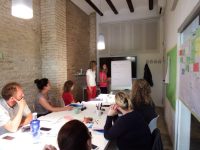
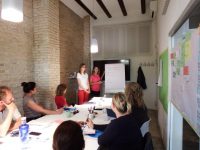
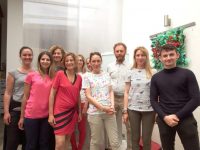
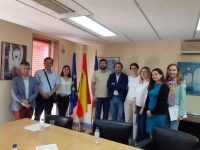
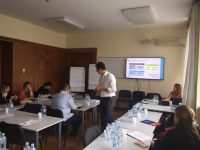
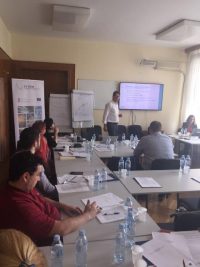
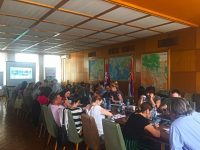
Social Media links